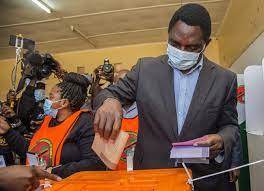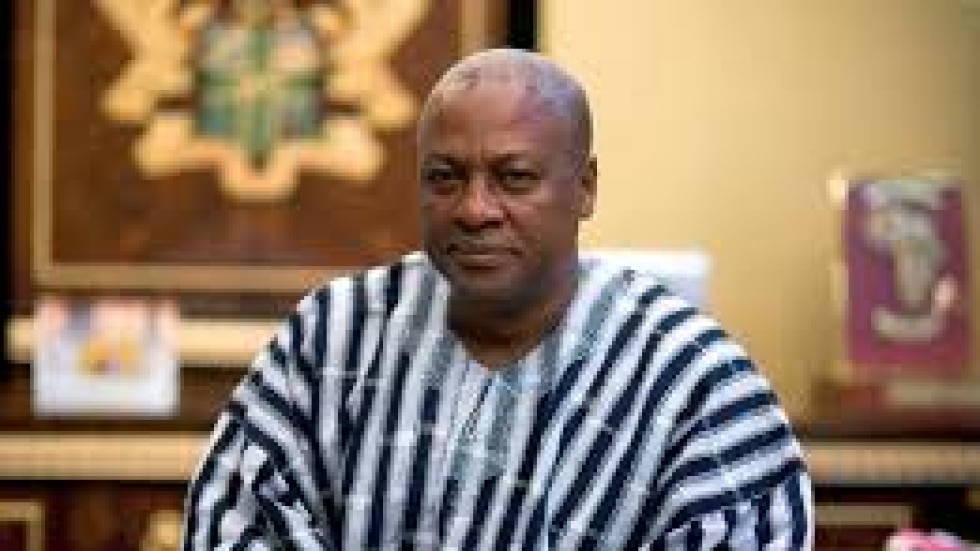Zambia’s Opposition Leader Wins Presidential Vote At Sixth Bid
Zambian business tycoon and veteran opposition leader Hakainde Hichilema scored a landslide victory on Monday in bitterly-contested presidential elections.
After a campaign dominated by the country’s economic woes and marked by sporadic violence, Hichilema captured 2,810,757 votes against 1,814,201 for President Edgar Lungu, according to nearly-complete results.
The electoral commission proclaimed Hichilema president-elect in the early hours of Monday, bringing the curtain down on Lungu’s nearly six-year stay in power.
As his victory became clear, Hichilema on Sunday called for peace.
“Let us be the change we voted for and embrace the spirit of Ubuntu (humanity) to love and live together harmoniously,” he tweeted.
It was the 59-year-old’s sixth bid for the top job and his third against his bitter rival Lungu, 64.
From narrowly losing against Lungu by a wafer-thin 100,000 votes in 2016, Hichilema won Thursday’s vote by nearly a million ballots.
‘Finally, he has done it!’
Thousands of Hichilema supporters flocked onto the streets of Lusaka, erupting into song and dance, cheering and waving party flags.
The celebrations continued into daybreak, as hundreds of people congregated outside Hichilema’s house in a leafy suburb of the capital.
“I am so excited, finally he has done it! Tonight we are celebrating Bally’s victory,” said 21-year-old Rosemary Malunga, referring to Hichilema by his nickname, which means father in local slang.
Hundreds also took their victory lap to the entrance of the presidential residence, where soldiers and police kept guard.
On Saturday, as ballots were being counted, Lungu claimed the vote was neither free nor fair, but his objections gained little traction.
International election observers have commended the polls’ transparent and peaceful organisation, which saw a turnout of around 70.9 percent — a huge jump from 57.7 posted in the 2016 polls.
But they also criticised restrictions on freedom of assembly and movement during campaigning.
Security forces blocked Hichilema from campaigning in several areas, including the strategic Copperbelt Province, citing breaches of coronavirus measures and a public order act.
Lungu deployed the military following pre-election clashes and reinforced the army presence in three provinces after two deaths were reported on election day.
Social media access was restricted in the capital Lusaka just as Hichilema cast his vote but was restored on Saturday following a court order.
Democracy boost?
Observers saw the election as a referendum on Lungu’s rule, which saw standards of living plummet and repression mount.
Hichilema enjoyed the backing of 10 opposition parties, which threw their weight behind his United Party for National Development (UPND).
Legislative and local elections also took place alongside the presidential ballot on Thursday.
Kenya’s former prime minister Raila Odinga congratulated Hichilema for a “decisive victory”.
“Amidst an unprecedented public health challenge, the Zambian people have made Africa proud for conducting a successful election,” Odinga tweeted.
The election, he hoped, strengthens Zambia’s democracy “and reminds fellow Africans elsewhere that nothing is impossible”.
Despite occasional episodes of political violence, Zambia has earned a reputation for stability. Every transition of power has been peaceful since the former British colony adopted its multi-party system in 1990.
“Zambians have lived up to be true democrats. It’s a different African story,” Ringisai Chikohomero, researcher at the Pretoria-based Institute for Security Studies, told AFP.
Hichilema’s prime task on taking office will be to tackle an economy wracked by high debt, inflation and unemployment.
Last year, the copper-rich southern African nation became the first country on the continent to default on its debt in the coronavirus era. From AFP





